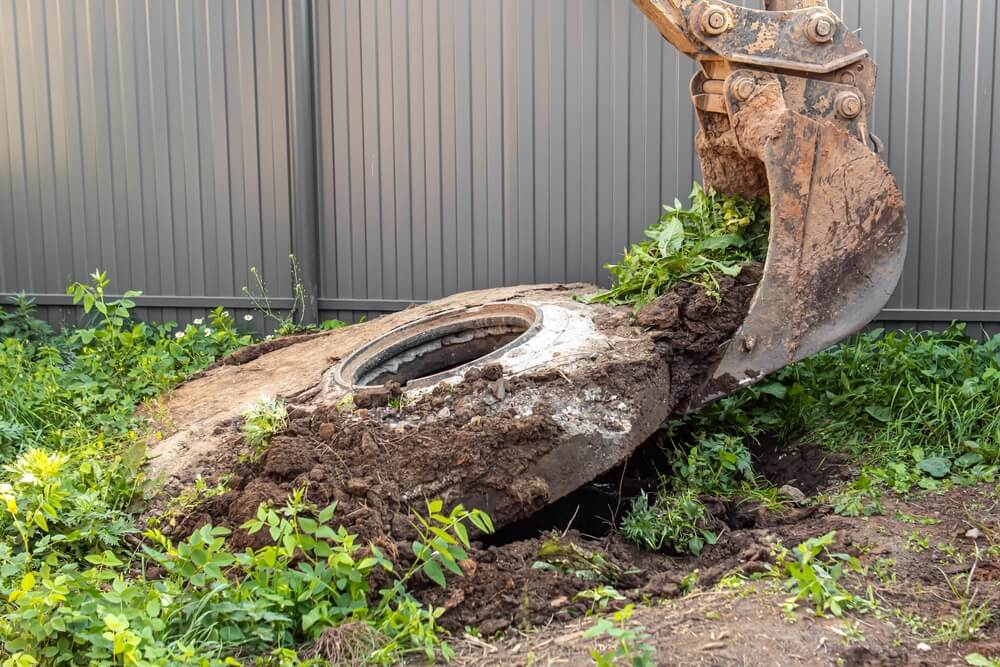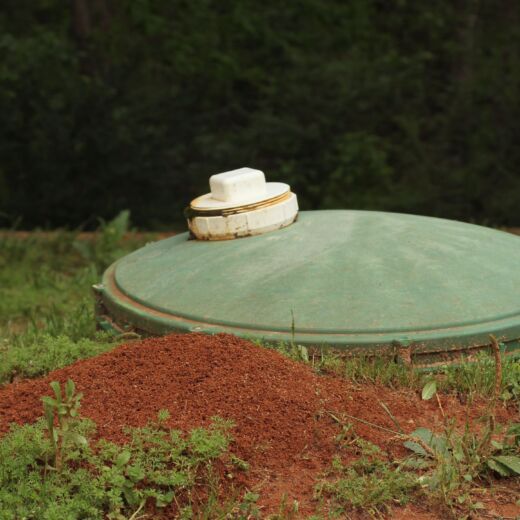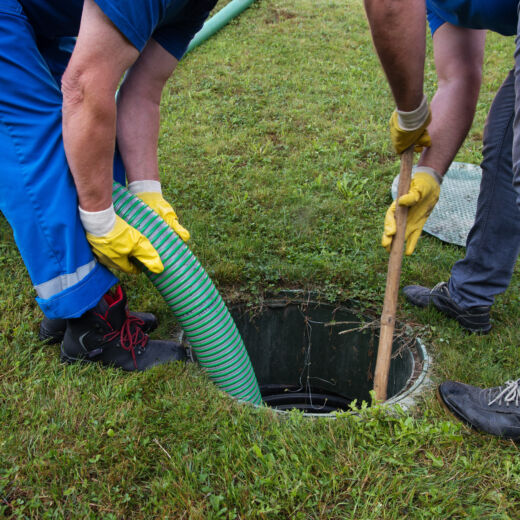If your septic system shows signs of failure, you may face a difficult decision—complete septic system replacement or determine whether system repairs are an option.
Homeowners in Strathcona County and across Canada often look into replacing their septic system when it starts to fail, believing this is their only option. Before you commit, though, it’s essential to have a professional assess your septic system to see if repairs are a viable solution.
While septic system replacement is always an option, it often comes with a hefty price tag. With repair and remediation technology advancing every year, septic system repairs are becoming the more practical and financially sound decision.
Read on to learn more about septic system replacements vs. repairs.
Things to Consider When Deciding Between Septic System Replacement or Repair
Understanding the scope, costs, and environmental impacts of both options is essential before making your final decision. While septic system replacement has traditionally been the standard approach, advanced repair strategies offer a comprehensive, cost-effective, and environmentally sustainable alternative.
Before deciding, it’s important to understand why your system is failing. It could be a variety of reasons, many of which stem from some combination of factors, including:
- Original system setup
- Material composition
- System aging
- System usage behaviours
Whatever the reason, a failed or failing septic system can no longer process wastewater as effectively as it once could.
When assessing a failure, we look at the septic system’s three components:
- Storage and separation
- Wastewater movement and delivery
- Processing and filtration
Issues with one or some combination of all three components are likely the cause of your problem. Ineffective wastewater processing can lead to backups into the house, tanks filling or overflowing, and visible wastewater above the septic field.
Causes of Septic System Failure
Fat, Oil, and Grease (FOG)
Household waste, including oils, fats, and greases from cooking, cleaning, and bathing, accumulates in septic systems, restricting flow and causing blockages. This buildup deteriorates soil filtration, reducing the efficiency of wastewater treatment. FOG also binds to soil particles, which causes the system’s natural filtration capabilities to deteriorate, and can often lead to system failure.
Incorrect Pumps and Pressure for Your System
When a pump is undersized or mismatched to the system, it fails to maintain the necessary pressure during wastewater delivery, increasing organic matter buildup throughout a septic system. Proper pump selection prevents blockages and ensures optimal system pressure and flow.
Septic Overload and Soil Saturation
When household demands on a septic system exceed what the system was designed for, the soil under it begins to lose the ability to filter and process wastewater effectively. This can be caused by an increase in the amount of water being processed beyond the system’s capacity, or an increase in the concentration of contaminants beyond what the system was designed to handle.
Common signs of soil saturation include:
- Wet spots
- Black slimy-biomat on the surface
- Pooling water
- Increased septic odors
These signs indicate that the system’s filtration capacity could be failing.
Septic System Replacement and Installation
If you’re dealing with a failing or declining septic system, it’s important to understand your options—full septic system replacement or repair and soil remediation. Both have their benefits and drawbacks depending on the condition of your system and your long-term needs.
Option 1: Septic System Replacement
Septic system replacement is a big job, involving digging up and removing the existing tank and drain field or abandoning it completely. Teams then install a new system, building over a new soil area, septic mound, septic field, or septic at-grade.
Pros of Septic System Replacement
- New system lifespan
- Installation that meets current regulations (larger septic tank, increased wastewater capacities, etc.)
- Brand-new system components
Cons of Septic System Replacement
- Expensive
- Intrusive and disruptive to your yard and landscaping
Option 2: Septic System Repair and/or Soil Remediation
This option aims to restore the natural function of your existing system through septic system repairs and environmental improvements. The goal is for your existing system to meet your current household demands.
Pros of Septic System Repair
- Cost-effectiveness
- Time-efficient
- Minimal yard disruption
- Improves current soil health and yard ecosystems
With innovation and technological advancements, more septic systems qualify for repair.
Cons of Septic System Remediation
- Not all systems qualify—some are beyond repair (e.g., collapsed tanks).
SepTech Canada Will Find the Best Solution for Your Septic Needs
Choosing between septic system replacement and repair depends on multiple factors, including budget, property conditions, and the age of your system. Septic system replacement provides a new septic system installation, but comes with the associated costs and land disruption.
Septic system repair, while often more cost-effective and environmentally friendly, doesn’t result in a brand-new system and isn’t a viable option for every situation.. If you’re facing the difficult decision between septic system repair and replacement, call the experts at SepTech Canada. We take pride in being one of the country’s most trusted septic service providers.
Contact SepTech Canada for a free, no-obligation consultation. Let our experts help you find a safe, reliable, and efficient solution for your septic system.




